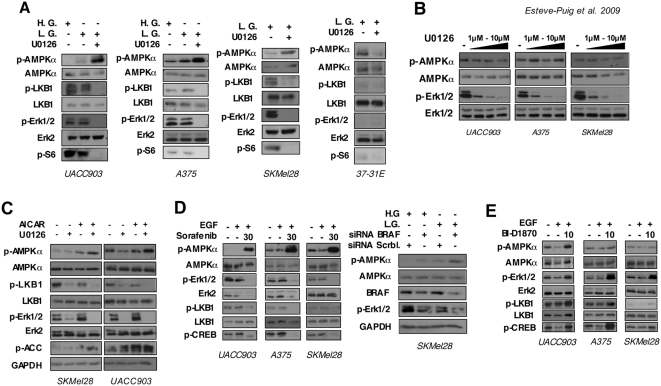Figure 3. Inhibition of oncogenic BRAFV600E signaling restores the limited response to metabolic stress of BRAF mutant melanoma cell lines.
(A) BRAF mutant melanoma cells have a limited response to energy withdrawal that is restored by U0126 treatment. Fifty micrograms of total lysates from UACC903, A375, SKMel28 and 37-31E melanoma cells grown in serum free high glucose medium (H.G.), serum free low glucose medium (L.G.) or serum free low glucose medium (L.G.) plus 10 µM of U0126 for 4 hours were separated by SDS-PAGE. Western-Blot shows the activation status of proteins in the RAS and LKB1-AMPK-mTOR pathways. (B) U0126 inhibitor treatment does not activate AMPK. UACC903 A375 and SKMel28 melanoma cells were grown in high glucose medium with serum in the absence or presence of 1 µM, 5 µM or 10 µM of U0126. Total protein lysates were subjected to SDS-PAGE. Western-blot shows the phosphorylation state of AMPKα in the presence of different concentrations of U0126. (C) Inhibition of BRAF signaling increases cell response to AICAR. UACC903 and SKMel28 cells were grown in complete medium; cells were treated with AICAR (1 mM) for 4 h in the presence or absence of U0126 (10 µM) inhibitor. p-LKB1Ser428, p-AMPKThr172, p-Erk1/2Thr202/Tyr204, p-ACCSer79 levels were checked by western blot. (D) Sorafenib treatment and siRNA BRAF knockdown restores the metabolic stress pathway in BRAF mutant melanoma cells. In the left panel, UACC903, A375 and SKMel28 melanoma cells were grown in low glucose serum free medium+/−EGF (50 ng/ml) for 4 h in the presence or absence of U0126 (10 µM) Western blots show the levels of p-AMPKαT172, p-LKB1Ser431 p-Erk1/2Thr202/Tyr204 and pCREBSer133 proteins under the different conditions. In the right panel SKMel28 cells were transfected with either a scramble siRNA or BRAF siRNA. 72 hours after transfection, cells were starved either in high glucose (H.G.) or low glucose (L.G.) medium for six hours. Western-blots show the levels of p-AMPKαT172, p-Erk1/2Thr202/Tyr204 and BRAF proteins. (E) p90Rsk inhibitor BI-D1870 (10 µM), does not restore the metabolic stress pathway. UACC903, A375 and SKMel28 melanoma cells were grown in low glucose serum free medium+/−EGF (50 ng/ml) for 4 h in the presence or absence of BI-D1870 (10 µM). Western blots show the levels of the indicated proteins under the different conditions.

